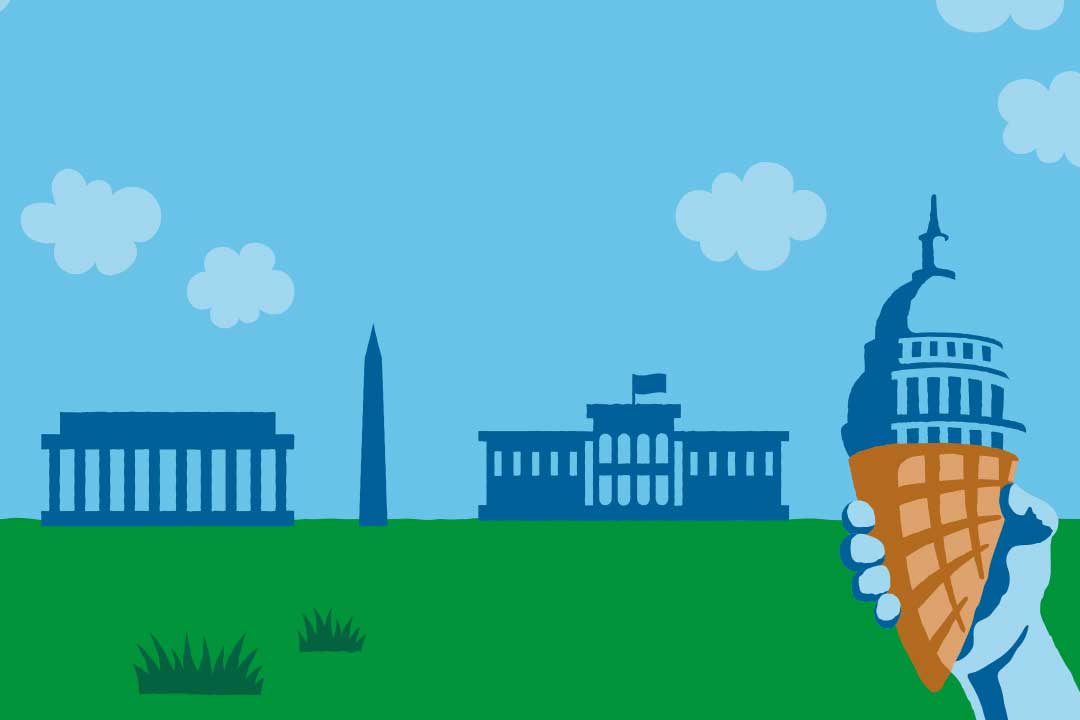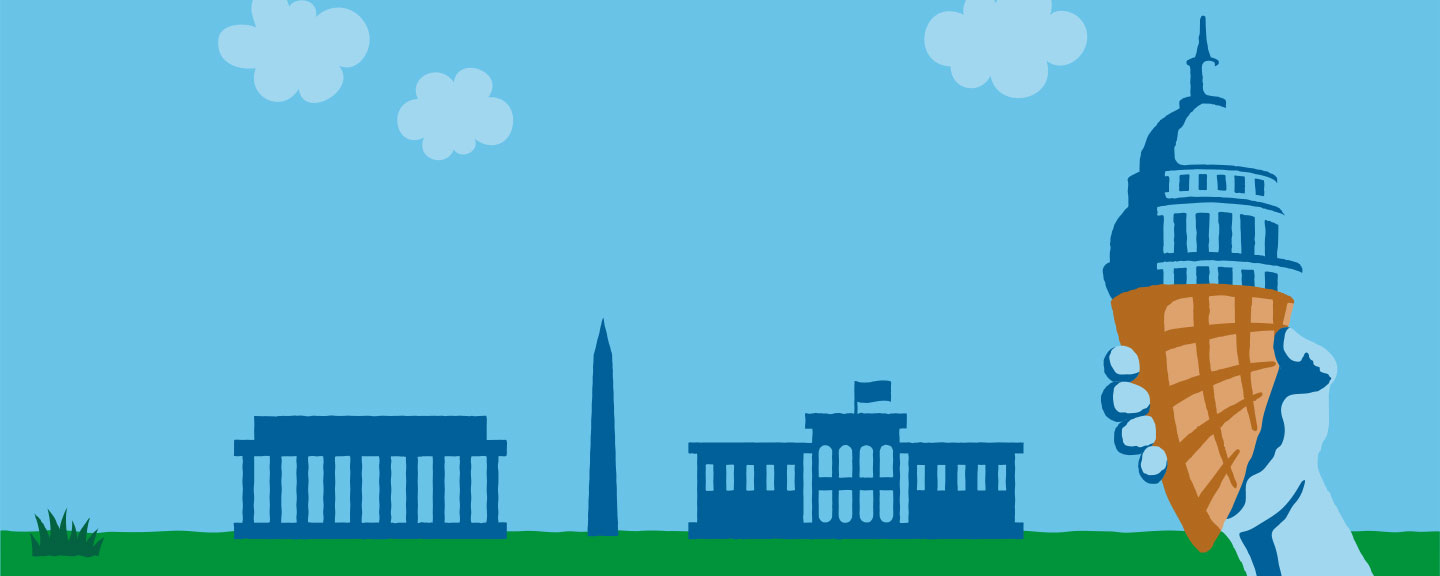We believe democracy only works when it works for everyone
But lately, it seems the challenges facing our democracy have gotten out of hand: Voter-suppression laws are targeting Black, Brown, and low-income voters, the gutting of the Voting Rights Act (VRA) has allowed many states to move forward with plans to make it harder for people to vote, and money from wealthy donors is corrupting the system.
There is hope. Because every individual has a hand in creating democracy. Our democracy does not belong to politicians. Or businesses. Or wealthy donors. It belongs to you.
Take Action
Want to strengthen our democracy? Register to vote, then make your voice heard. Not sure if you’re registered? Find out here.
Then join us in calling for the restoration of the Voting Rights Act!
Friends in the Movement
-
Color of Change helps people respond effectively to injustice in the world around us. As a national online force driven by over one million members, they move decision-makers in corporations and government to create a more human and less hostile world for Black people in America.
-
The mission of the National Association for the Advancement of Colored People (NAACP) is to ensure the political, educational, social, and economic equality of rights of all persons and to eliminate race-based discrimination.
-
The ACLU works in the courts, legislatures, and communities to defend and preserve the individual rights and liberties guaranteed to all people in this country by the Constitution and laws of the United States.
-
The FRRC is a group of 70+ national, statewide, & local organizations (ACLU, NAACP, League of Women Voters, Latino Leadership, and others) committed to eradicating Jim Crow in Florida. We are firmly committed against a civil and voting rights ban that strips away rights from 1 million Floridians and about 5 million Americans, nationally.
Frequently Asked Questions
-
The Ben & Jerry’s Democracy is in Your Hands Campaign is a campaign to bridge the divide between two historically different but intrinsically connected issues: the movement to expand voter access and voting rights and the movement to get big money out the political process. We want to activate citizens to take action for a more equitable and just society by building a democracy that works for all regardless of race or income.
-
The Voting Rights Act of 1965 is a landmark piece of federal legislation in the United States that prohibits racial discrimination in voting.
-
Voter ID laws are a solution looking for a problem. They are supposed to help prevent voter fraud. That said, There is no evidence to support the idea that voter impersonation fraud is happening in our elections, which is the only kind of fraud an ID law would protect against. Voters showing up at polling places pretending to be someone they are not in order to cast a fraudulent vote simply isn’t a threat to our elections. There is ample evidence though, to suggest that voter ID laws discriminate against people of color, low income people and the elderly who are less likely to have state-issued IDs. Some states have hundreds of thousands of eligible voters without ID cards.
-
The Voting Rights Act has been the most important law in our nation’s history in protecting citizens’ right to vote. Its passage in 1965 was a crowning achievement of the civil rights movement, allowing millions of mostly African American voters, to exercise their right to vote. But in 2013, the Supreme Court gutted one of its key provisions, known as “preclearance.” As a result, states with a history of discriminatory voting systems no longer need the approval of the Justice Department to make changes to election districts and rules. Essentially, the court found that the VRA’s criteria for requiring preclearance in 15 states was outdated and therefore unconstitutional.
The court intended the impact to be temporary and urged the Congress to update the preclearance criteria. The Congress, mired in partisanship and gridlock, has not acted.
-
- Automatic voter registration
- Enhanced and expanded early voting
- Enhanced and expanded voting by mail
- Overturning onerous voter ID laws.
-
We all have, or should have, an interest in creating a democracy that works for everyone, not just the few.
-
The Citizens United v. FEC SCOTUS ruling found limits on election spending by individuals and corporations to be unconstitutional.
-
The Ben & Jerry’s Democracy is in Your Hands Campaign is bridge the divide between two historically different but intrinsically connected issues: the movement to expand voter access and voting rights and the movement to get big money out the political process. We want to activate citizens to take action for a more equitable and just society by building a democracy that works for all regardless of race or income, regardless of race or income..
-
Go to www.benjerry.com/democracy and join the movement to get involved.
-
No. We are non-partisan and we don’t support candidates, political parties or super PACS.
-
That was initiative of our co-founders Ben Cohen and Jerry Greenfield. They were speaking and acting as private citizens, not Ben & Jerry’s or Unilever.
-
Because we all have an interest in a democracy that works for everyone. Publicly funded elections would remove the flood of unlimited and unregulated spending on elections and remove the appearance of corruption and conflict of interest.
-
A small number of wealthy families and individuals contribute the overwhelming majority of money that flows into our political system. These donors are primarily white, older, male, and work in the finance and energy industries. The interests and policies that these donors promote are often in conflict with policies that would benefit a broader cross section of the American people – and that are supported by the majority of the American public! These donors have successfully kept the US from acting in the country’s best interests on a broad range of issues, from climate change to financial reform.
-
At Ben & Jerry’s, we have always been political. We advocate for progressive social change that is rooted in our company’s mission and values. From marriage equality and LGBTQ rights, to climate justice and GMO labeling, we stand up for the issues we believe in, and we have never shied away from controversy. But we are staunchly non-partisan. We don’t support candidates or political parties nor do we make contributions to candidates, parties, or super PACS, and we never have. It is clear to us that elected representatives in government are supposed to represent people, not corporations.
-
We support workers’ rights to organize in unions if they choose – it’s a basic right to freedom of association. We also believe that unions, like other organizations, bring an important voice to public discourse. But we believe unions should not bankroll the campaigns of candidates any more than corporations.
-
There are a number of ways we can make our democracy work better and ensure it is more responsive to the needs of all Americans. Among the policies we support are:
- Creating a strong small-donor public financing system
- Ensuring meaningful limits on the amount of money donors can contribute to political campaigns
- Protecting the right to vote
- Advancing campaign disclosure and transparency efforts
- Overturning Citizens United and Buckley v. Valeo through the Democracy For All constitutional amendment
- Reshaping the way the U.S. Supreme Court views money in politics issues
- Making sure lawbreakers are held accountable by replacing the Federal Election Commission with a stronger agency and encouraging the Department of Justice to investigate and prosecute criminal violations of campaign finance laws
-
A Super PAC is similar to a regular PAC in that it’s a private group funded and organized to help elect a political candidate, or advance a legislative agenda. However, PACs can only accept donations from individuals, and there’s an annual limit of $5000. Where a Super-PAC differs from a PAC is that it must be independent from a candidate and his or her campaign. Super-PACs cannot donate money to or coordinate directly with the campaign. In 2010, the SCOTUS in its Citizens United decision opened the door to corporations, unions, and individuals to donate unlimited amounts of cash to super-PACs
-
Candidates that raise money from a large number of small dollar contributors versus a small number of large donations avoid the appearance of corruption and being beholden to a handful of very wealthy people. We believe that the number of contributions a campaign or candidate receives is a better measure of grassroots support than the amount of money a candidate or campaign raises.
-
Like Ben & Jerry’s, Unilever doesn’t support candidates or political parties nor do we make contributions to candidates, parties, or super PACS.
-
Systemic racism is not a problem that African Americans can solve alone. Not unlike the issue of marriage equality, this is a problem that will take everyone to solve, not just those who are under threat from it. And as Martin Luther King wrote in his Letter from a Birmingham Jail, “Injustice anywhere is a threat to justice everywhere.” So we want to work inside our company and in our home state of Vermont to create racial equity – but also to stand up for racial equity everywhere.
-
It’s not a question of whether or not police are good or bad. We know our criminal justice system is rife with inequities based on race. One striking example is that African Americans are 5 times more likely to be incarcerated than whites. We must acknowledge that systemic racism and implicit bias are creating unfair outcomes for people of color in our country. . We all have an interest in a strong system of police accountability, including the police, because accountability is a solid foundation for building deeper trust between police and communities. We will all benefit from reform in our criminal justice system.
-
Implicit bias is the behavior that results from attitudes and stereotypes that often operate at a level below conscious awareness and without intentional control. (adapted from Dovidio, Gaertner, Kawakami, & Hudson, 2002, p. 94; also Banaji & Heiphetz, 2010) Implicit bias leads all of us to discriminate against people in various ways - even when we think we are being fair. For example, a Harvard study showed that hiring managers are much more likely to call back job applicants that have names that sound white than they are applicants that have names that sound African-American. To create true racial equity, we need to create practices and policies in every aspect of life that protect against implicit bias.
-
No. Actually, we aren’t. The truth is that people of color in our country have worse outcomes across virtually every measure of health, well-being, and economic prosperity than whites. For example,
- The rate of childhood poverty for African Americans is more than double that of whites.
- The unemployment rate for African Americans is more than double that for whites.
- Annual median incomes for African Americans is just 58% that of whites.
- The median wealth of white households in 20 times that of black households.
Although we have made progress on many measures of racial equity, systemic racism and implicit bias are still deeply rooted in our society. The illusion of a post-racial color-blind society is even part of the problem, because it makes it harder to understand the reality that whites enjoy subtle advantages over other racial groups that lead to better outcomes.

